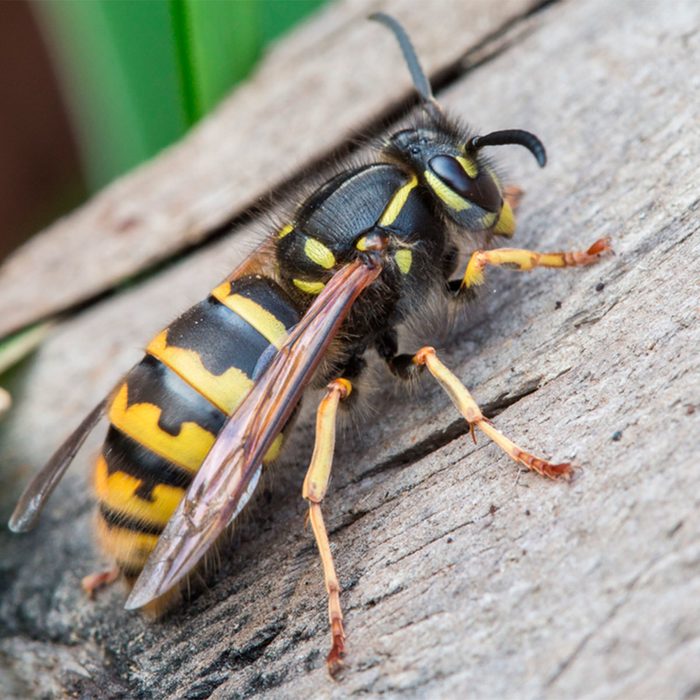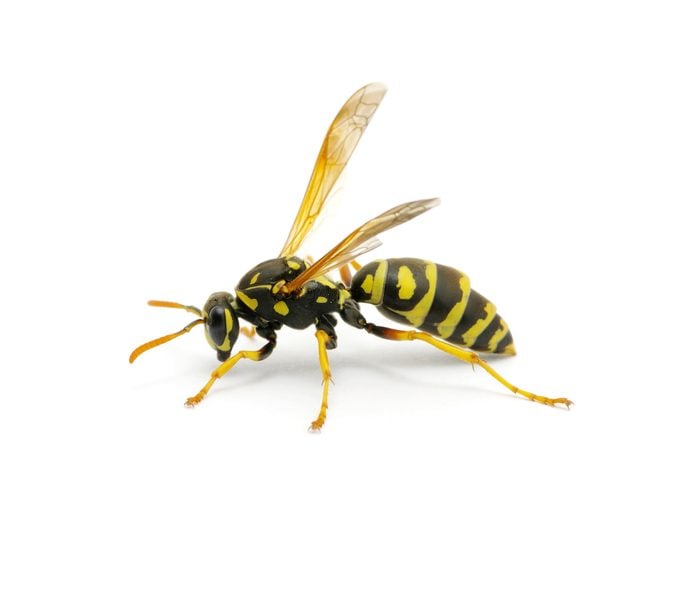6 Key Differences Between Bees and Wasps

Use this handy guide to know whether it's a bee or wasp buzzing through your backyard.
While we often associate bees and wasps with the danger of an unpleasant sting, there’s so much more to bees than that. In fact, bees are among the most important creatures on the planet when it comes to their impact on humans and the planet’s natural ecosystems. But for now, use this handy guide to know whether it’s a bee or wasp buzzing through your backyard.
Differences in Body Shape
Wasps have slim bodies and narrow waists that connect thorax and abdomen. Bees have thick, rounded bodies with stripes. Plus, are you interested in beekeeping? Check out these 14 tips for doing it in your backyard.
Look at the Wing Position
Two sets of wasp wings run parallel to the abdomen when folded down. With bees, two sets of wings rest on top of the thorax (middle part of the body) when folded down. These are the top 13 plants for bees and other pollinators.
How Many Legs Do Bees Have?
Bees have six short, bulky legs that are flat, not rounded. Wasps have six long, skinny legs with several spines. Learn how to tell the difference between bees and flies.
Do Bees Die When They Sting?
Sometimes. A honey bee stinger stays in the victim, meaning the bee eventually dies. Other bees can sting multiple times. Conversely, the stinger stays with the wasp, allowing it to sting several times. Discover these bee-friendly plants to add to your yard.
Do Wasps Pollinate Plants?
Bees and wasps are both pollinators that will visit backyard blooms to sip on sweet nectar. Bees have pollen-collecting hair on their bodies, and females also have hair on their legs and bellies. Psst — try these natural ways to keep bees and ants away from hummingbird feeders.
What Do Bees and Wasps Eat?
Bees often get blamed for the aggressive and annoying tactics of wasps. As strict nectar and pollen eaters, bees spend most of their time foraging at flowers. If you don’t bother them, they won’t bother you. Wasps, however, are predators always on the hunt for their next meal, whether that be insects or the food at your barbecue.



